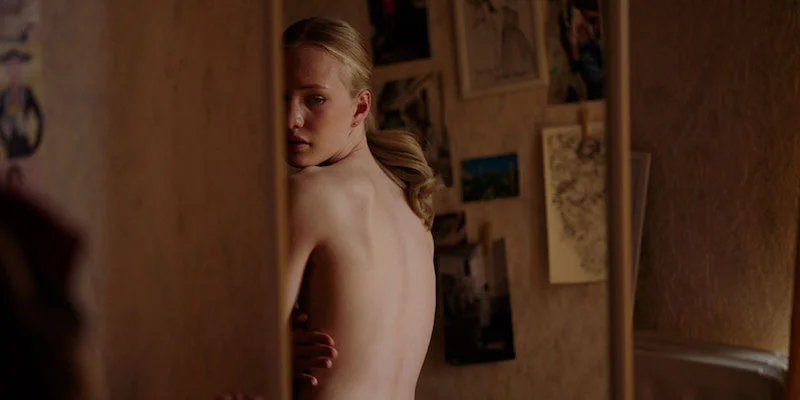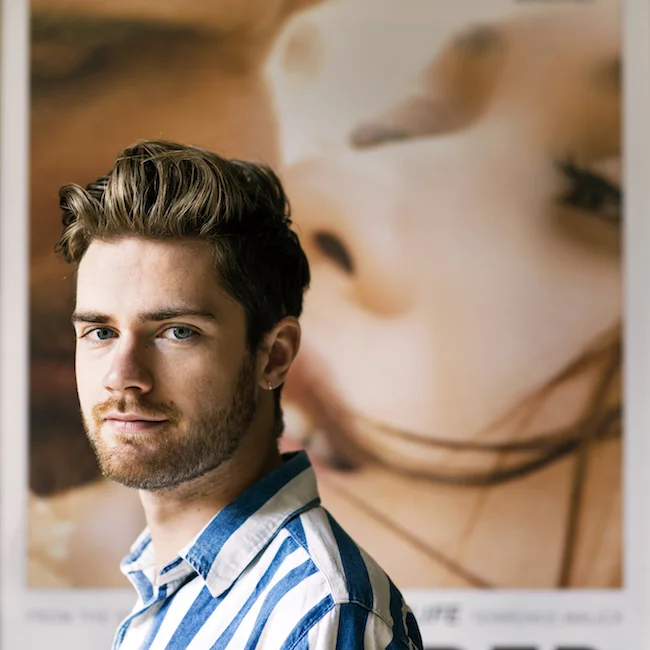At the center of filmmaker Lukas Dhont's groundbreaking first feature 'Girl' -- screening at this year's Festival de Cannes in Un Certain Regard -- is a teenager who wants to be a ballerina. Complex, as all teenagers typically are, beautiful, painfully honest and exquisitely feminine, the only twist here is that Lara was born a boy. And it's obvious from her very first moments on the screen that having that part of the body which separates the boys from the girls is something utterly unbearable for Lara.
But instead of creating conflict around this beauty, be it coming from her family, friends and the world at large, Dhont brings us instead into a world where a girl born into a boy's body who begins treatment to transition to her true self when we first meet her, has all the support she could ever hope for. And yet, her own passions, her self discipline, her sense of displacement inside the body fate dealt her at birth create enough strife, hold-your-breath moments and emotions to fully charge a one hour and forty-five minutes film. And fill our dreams for days and days to come.
Dhont was inspired by a true story, an article he read in a Belgian newspaper and his inspiration, the true life "Lara" was present at the film's premiere. It was at once moving and eerie to watch her from afar, as she stood in her gown outside the theater clearly moved after the screening and it's uncanny how perfectly like her the actor Dhont chose to play Lara is. While his script and his direction are masterful, wise well beyond a first feature and his 27 years, it is undeniable that Victor Polster, the dancer Dhont picked out from more than 500 young men and women who auditioned for the part is the reason we the audience buy the premise of 'Girl' so wholeheartedly.
I sat down with both Dhont and his actor Polster separately and found within those interviews some of the most magical moments I've spent in Cannes so far. I would not be surprised if most who came across this clear revelation of a film here at the festival felt the same way, watching Lara and her perfectly human story unfold before their very eyes -- on the big screen.
Following are a few highlights from the interviews.
Lukas Dhont by Johan Jacobs
Yesterday at the screening, it felt as though something very important was happening. From one moment to the other, you two and the film became sort of the hit of the festival but more than that. How did you experience that?
Lukas Dhont: (catches his breath) Whoo. I was almost going to cry again there! Thank you. It was an incredibly overwhelming feeling, we really had just finished the film before coming here to Cannes. It was the first time for me sitting in a theater with an audience, which obviously as a director the effect on an audience is your most important thing -- it's your cause, why you do it. I was closing my eyes during the whole film and I was listening to the sounds because I knew what was coming. I had one actor who hadn't seen the film, the father [the magnificent Arieh Worthalter] next to me and he was crying and I was like "oh my God I don't know if I'm going to be able to do this..." And then when the lights came on and I heard the reaction, and I saw the reaction, I think it was incredible because the story touched me so much -- that's why I made the film, that's why I worked on it for so long -- and I had hoped it would have that effect on people. But to see that it did have that effect on people was for me a super emotional moment.
I think that Lara shows us something that we wanted to see that is important in this time, in this movement when we are really starting to give voice to people who for a long time didn't speak, or weren't heard and I think it's a beautiful thing.
Victor, how difficult was your preparation to become Lara?
Victor Polster: The preparation was quite complicated, because first of all I had only three months to learn to dance on point and it's very short since girls learn it from the age of twelve. And then I also had to work on my voice to make it more feminine and I had a lot of fittings for costumes, make up and hair extensions. And then for the mental preparation of course the dance classes were a good way to be prepared physically and mentally.
Lukas, what drew you to this story, what inspired you to make this film?
Dhont: What inspires me are characters that really challenge this classic idea of what it means to be a man or what it means to be a woman. I think as human beings we all have masculinity and a femininity and a part of the people doesn't allow one of the two. And this is a shame. As a kid I had the feeling that I was a boy and still I felt more feminine than masculine and it was very confusing for me growing up. Because I had a lot of examples around me that were fitting into the norm. So for me it's very important to show characters who defy that, who challenge that and I really wanted to add to that debate. I think over the years the visibility of transgender characters has grown, which I'm very happy about and I wanted to add to that. In the sense that I wanted to make a film about a character, in which I didn't go to look for the conflict in the outside world. I wanted her to have a parent around her, I wanted her to have family who support her and love her and don't want to question that.
And have a protagonist who, by not having to fight the outside world, can really be as complex as she wants to be and can make her own mistakes. Even though I call her a heroine, at the same time she is a human being, that makes mistakes and wants to go too fast.
I heard that the character of Lara is based on a real person, so did you meet with her before beginning to work on your character and what did meeting her bring to your interpretation?
Polster: I met her and it was very important for me that she would be there on the set and that she would find the movie natural and as in real life. That she would be the first to believe in it.
Can you describe your experience in Cannes with 'Girl' -- using only one word?
Polster: Magic.

